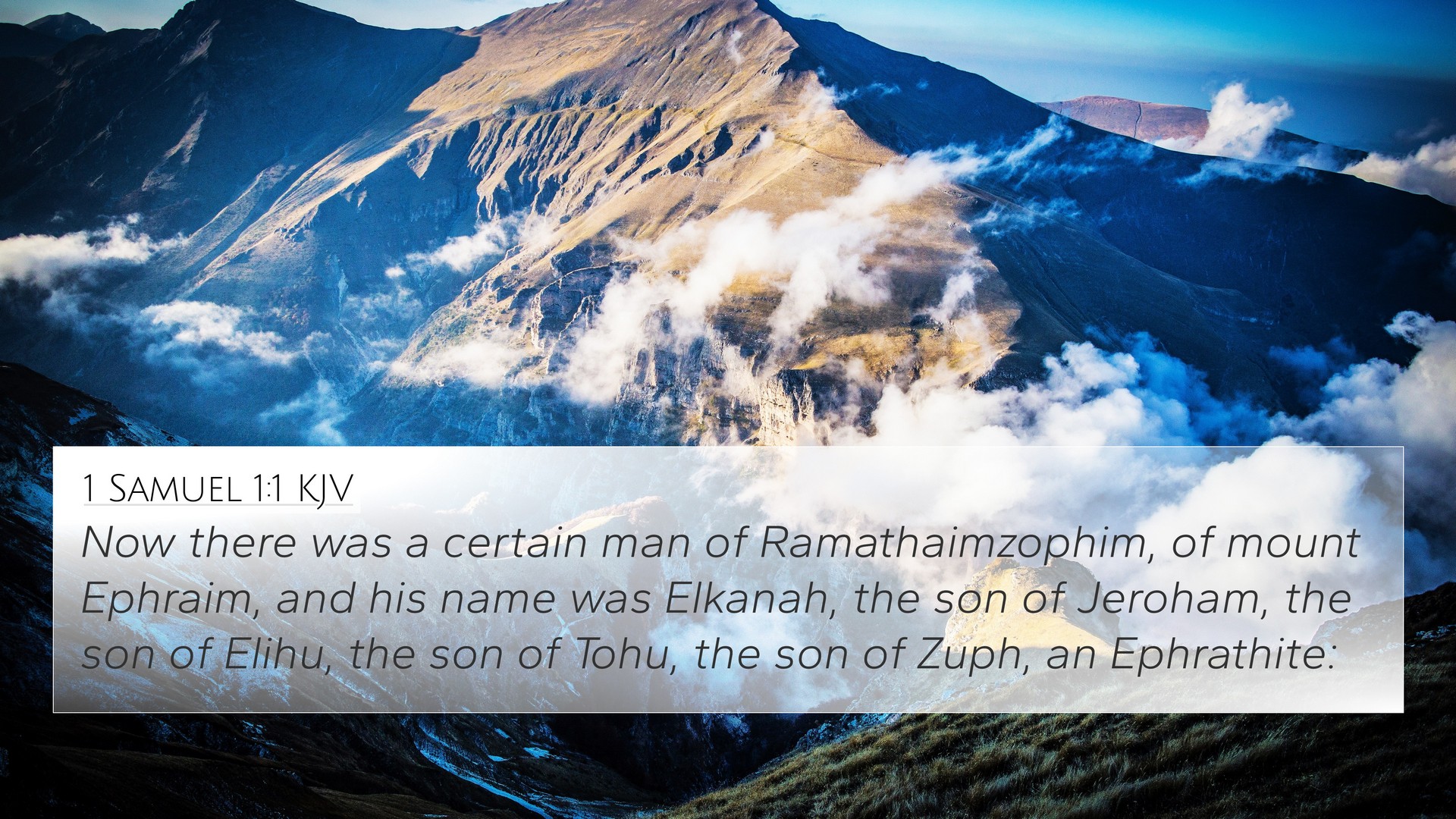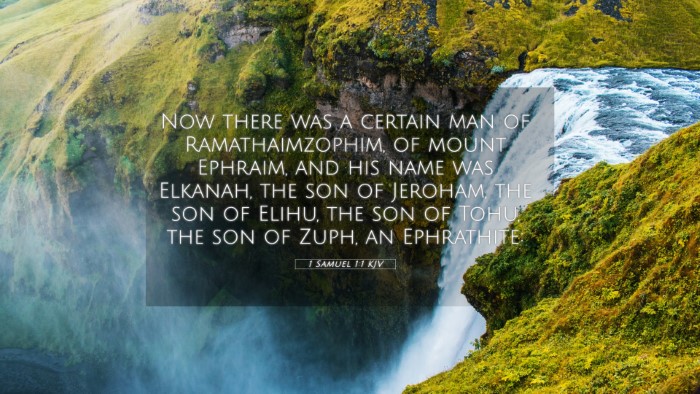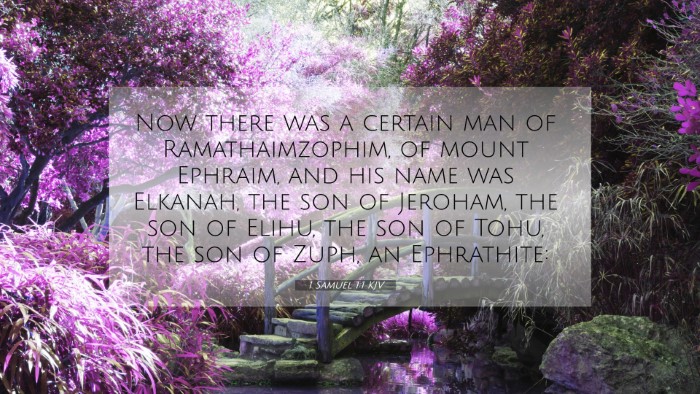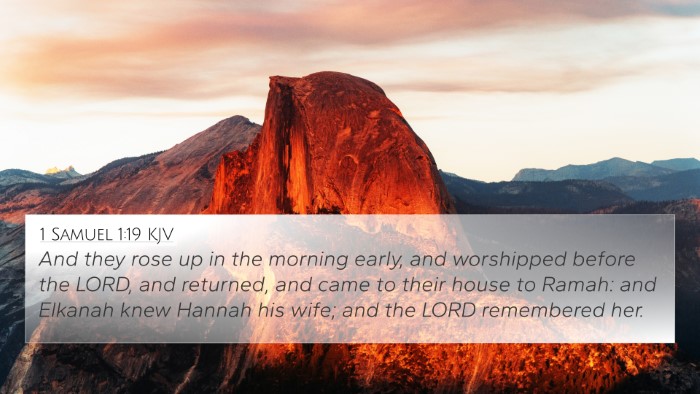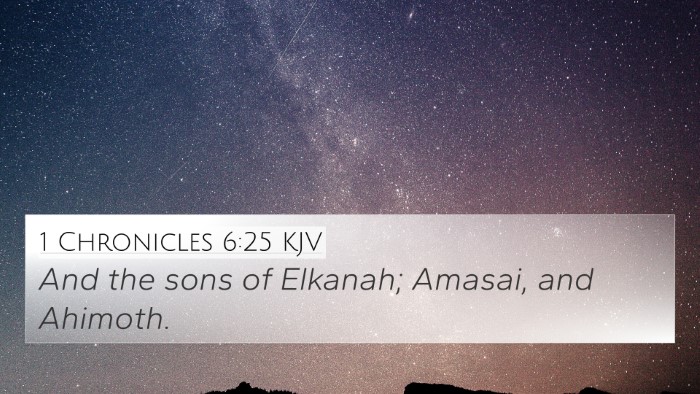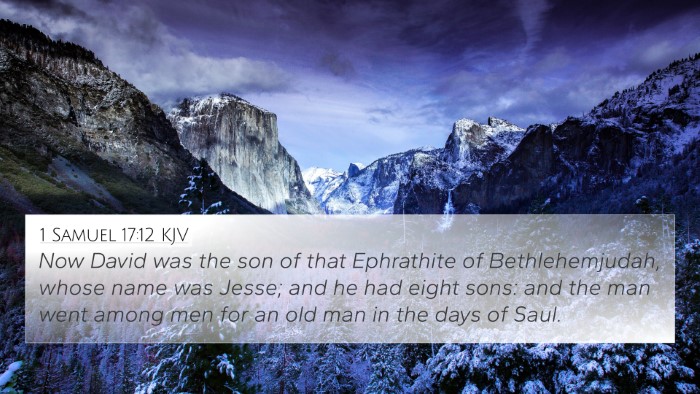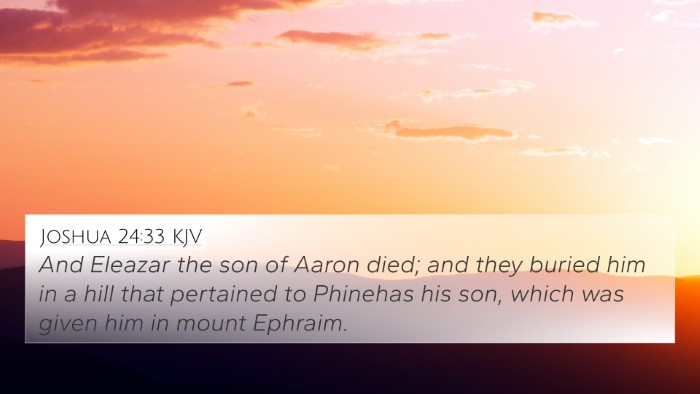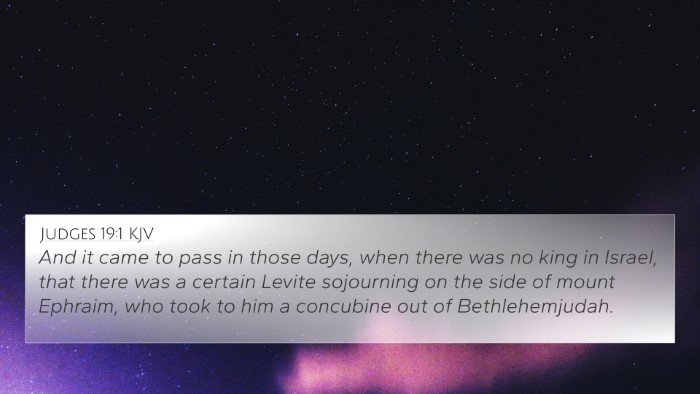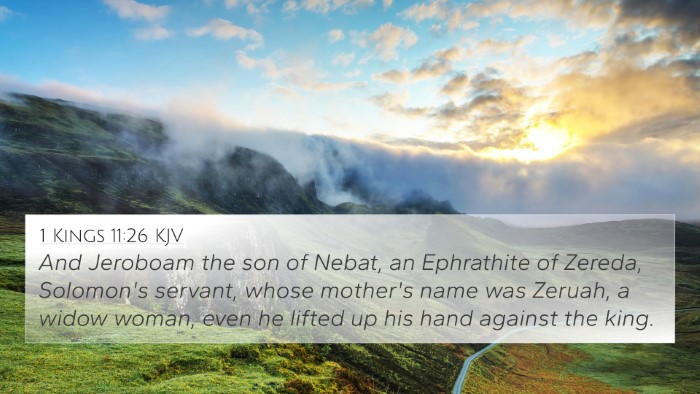Understanding 1 Samuel 1:1
1 Samuel 1:1 reads: "Now there was a certain man of Ramathaim-zophim, of mount Ephraim, and his name was Elkanah, the son of Jeroham, the son of Elihu, the son of Tohu, the son of Zuph, an Ephrathite." This opening verse introduces significant elements vital for understanding the narrative that unfolds in the Book of Samuel. Below is a comprehensive analysis, enriched with insights from renowned public domain commentaries.
Contextual Overview
This verse sets the stage for the narrative about the life of Samuel, the last of the judges and the first of the great prophets of Israel. Understanding the sociopolitical context of Israel during this time is crucial as it leads to pivotal developments in Israel's history.
Commentary Analysis
Matthew Henry Commentary
Matthew Henry emphasizes the importance of names and genealogies in the Bible. Elkanah's lineage is significant as it connects him to the priesthood. His ancestry, going back to Zuph, is highlighted to establish his Israelite heritage and the legitimacy of Samuel's upcoming role. Henry also suggests that the introduction of Elkanah serves to prepare the reader for the major theme of divine intervention, particularly concerning Hannah, Elkanah's wife, who is central to the story.
Albert Barnes Commentary
Albert Barnes gives a geographical perspective, explaining Ramathaim-zophim as a town in the mountainous region of Ephraim. He notes that the town's location holds significance, indicating that Elkanah was a man of stature and religious devotion, residing in a region associated with important biblical events. Barnes connects this to the transition period of Israel's governance from judges to monarchy, characterizing Elkanah as a link between these eras.
Adam Clarke Commentary
Adam Clarke focuses on the specifics of Elkanah's family and character. He mentions that the names in the genealogy, particularly 'Zuph' and 'Ephrathite', emphasize a connection to Bethlehem, linking to future messianic implications. Clarke refers to this as preparing readers for God's workings through Hannah and Samuel, a theme central to the narrative. He sees Hannah's struggle as a reminder of the societal and personal trials leading to profound divine acts.
Bible Verse Cross-References
- Judges 21:25: Highlights the chaos during the time of the judges, emphasizing the need for divine leadership.
- 1 Samuel 1:2: Introduces Hannah, Elkanah's wife, whose barrenness is pivotal for the narrative.
- 1 Chronicles 6:25-27: A genealogy list that confirms Elkanah's Levite descent, enhancing the understanding of priestly roles.
- Luke 1:5: Connects to the New Testament with the lineage of Zechariah, a priest, showing the continuity in God's plan through priestly lines.
- Hebrews 11:32-34: References Samuel’s faith as a prophet in the context of the faithful judges of Israel.
- Matthew 1:12: Another genealogical reference showing the fulfillment of the covenant in Christ through David's lineage, connecting to the Ephrathites.
- 1 Samuel 16:1: Where God sends Samuel to anoint a new king, depicting the fulfillment of his prophetic role.
- 1 Thessalonians 5:24: Highlights God's faithfulness, which resonates with Elkanah's family experience.
- Isaiah 53:2: Foreshadowing the silent servant, indicating God's working through individuals with humble beginnings, similar to Samuel's story.
Thematic Connections
The verse's themes include:
- The Importance of Lineage: Both Henry and Clarke argue that genealogies signify divine providence, marking the sanctity of God’s chosen in establishing leadership.
- The Role of Women: Hannah's initial presentation and her subsequent prayers reflect the importance of maternal influence in Jewish tradition.
- Divine Intervention: Each commentary notes the importance of God’s providence in raising leaders in Israel, portraying a cycle of need followed by deliverance.
- Transition of Leadership: This verse signifies the pivotal time in Israel's history, reflecting the move from theocratic judges to a centralized monarchy.
Applications and Insights
1 Samuel 1:1 teaches about faithfulness in personal struggles and the importance of family backgrounds in God's plan. It serves as a reminder that God can use anyone, regardless of their beginnings, to accomplish His divine purpose.
Conclusion
In summary, 1 Samuel 1:1 introduces us to Elkanah and sets the groundwork for understanding how God operates in the lives of those who seek Him fervently. As one explores the cross-references and connections between Scripture, the overarching narrative of God's sovereignty becomes clearer, revealing the intricate tapestries woven through individual lives and national histories. The resonances of this verse permeate through both the Old and New Testaments, encouraging readers to consider the significance of personal and communal devotion.
